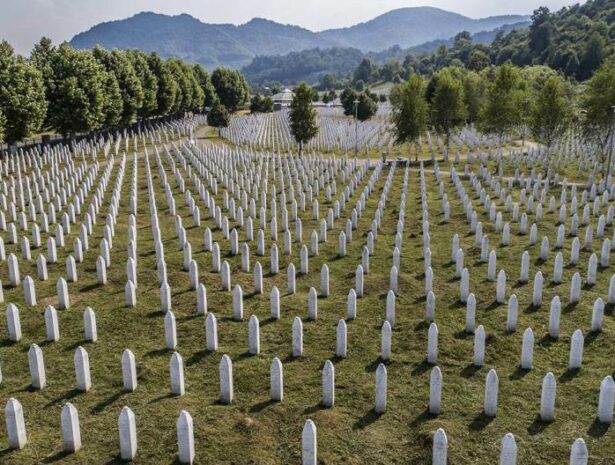Remembering Srebrenica: Focus on women
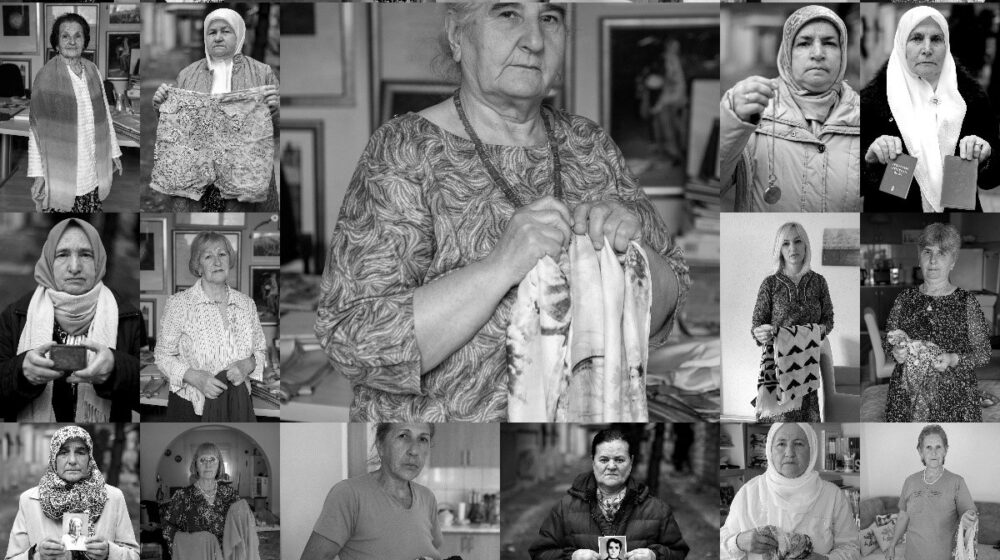
It was the largest mass atrocity in Europe since the Second World War: Twenty-seven years ago today, the Bosnian Serb military systematically killed more than 8,000 Bosnian Muslim men and boys near the town of Srebrenica. The Srebrenica Memorial Center has been documenting the genocide for years, with a focus on memorializing individual fates. This year, the organization features the stories of women in the aftermath of the genocide. The Arolsen Archives met the team during their preparations for the upcoming commemoration.
“Thousands of women were persecuted and deported during the Bosnian war. Female survivors were also at the forefront of promoting justice for the Srebrenica genocide,” explained Amra Begić Fazlić, Deputy Director of the Srebrenica Memorial Center, when a delegation of the Arolsen Archives visited the site. “Yet the stories of women were somehow left behind.” In fact, it was the unyielding commitment of female activists that led to the establishment of the Memorial Center in 2000. The “Mothers of Srebrenica,” an association of women who lost family members during the genocide, played a particularly vital role.
#onasrebrenica makes female voices heard
To ensure that the stories of women are told too, and to honor their fight for justice, the 27th anniversary of the genocide on July 11 has a special motto: #onasrebrenica (“her Srebrenica”) that gives a voice to the women, mothers, sisters, and daughters of Srebrenica. Several exhibitions, social media activities, and workshops have been organized around the stories of women.
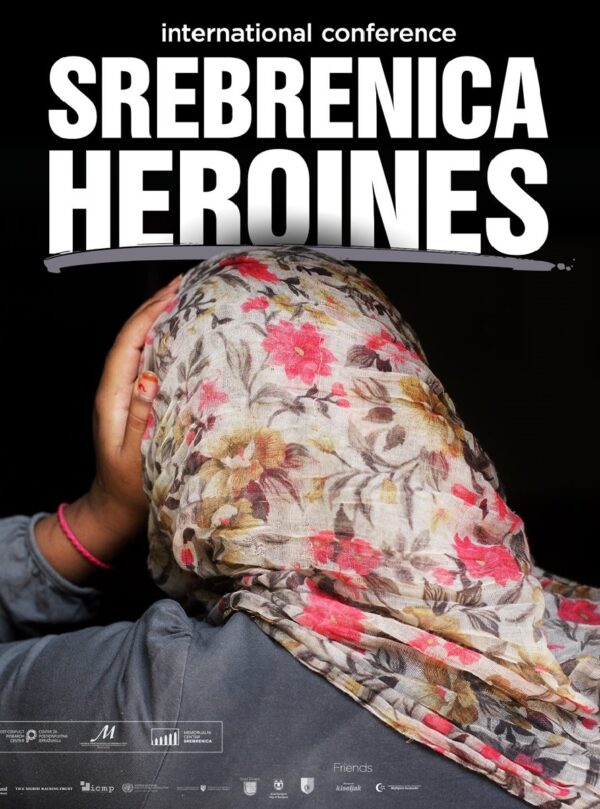
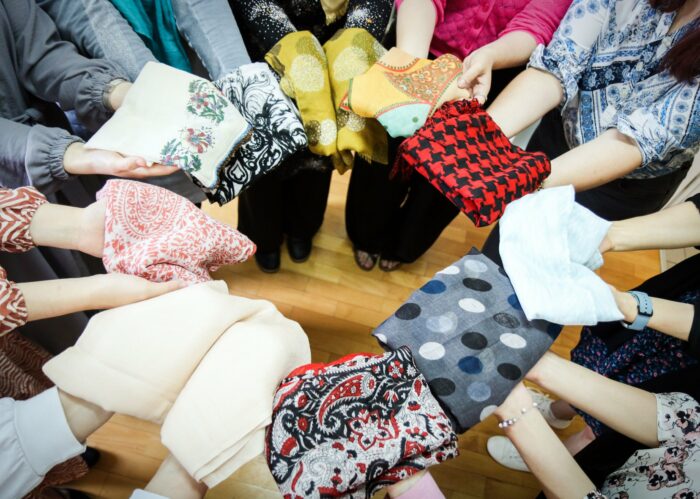
Scarves of Srebrenica
From July 10 on, the Memorial Center will hold an exhibition with a focus on women’s roles in the fight for justice. In addition, the ongoing “Scarves of Srebrenica” installation features an extraordinary collection of over 2000 headscarves (as worn by Muslim women) that were given by mothers of Srebrenica and by other women from all over the world.
Never again: Raising awareness about genocide
To this day, new mass graves are being found in Bosnia, and more victims are being identified. That is why the Memorial Center and its associated organizations will also hold an official funeral for 49 newly identified victims on the 27th Remembrance Day. Over 20,000 participants are expected to attend the 2022 commemoration, which will officially start with the annual peace march on July 8. The three-day hike follows the same forest path that thousands of the victims used – many of them in vain – to flee from the genocide.
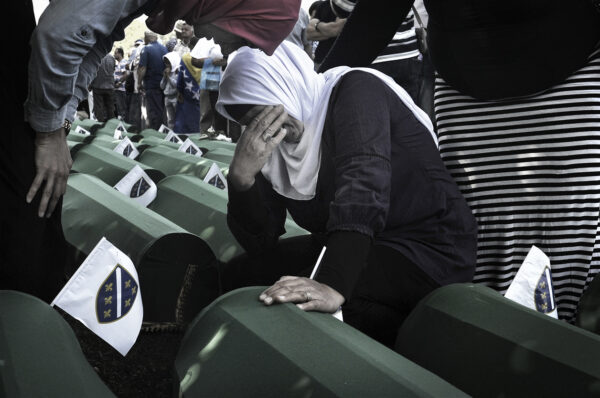
Almost every year since the Memorial Center’s foundation, victims have been buried during the commemoration. Hundreds of people are still missing. (Photo: Stefano Lupi)
Oral history: Survivors tell their stories
To make individual stories heard and raise awareness about the genocide, the Memorial Center has also embarked upon an extensive oral history project: For three years now, the team has recorded the testimonies of genocide survivors and witnesses. More than 300 interviews were conducted; some of them lasted for many hours. The testimonies are now being transcribed and indexed to make them searchable. Many young volunteers and interns from around the world are helping with this and with other commemoration projects – learning life lessons about the destructive force of ethnic hatred.
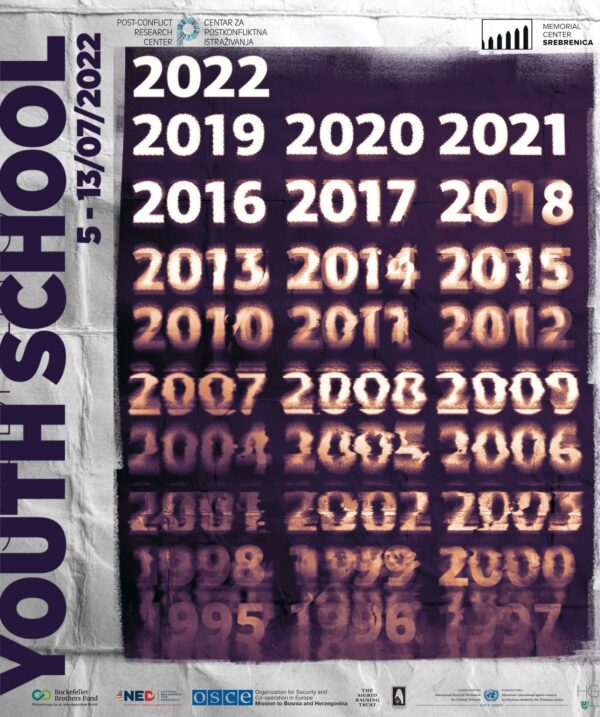
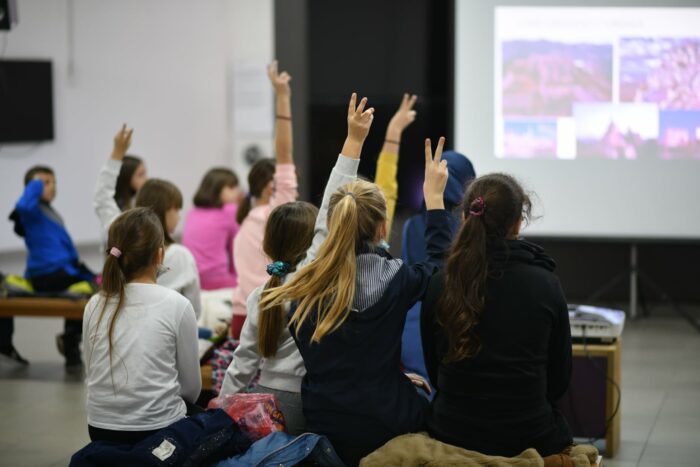
Education and research activities
The Memorial Center welcomes many school classes and researchers each year, offering education about transitional justice, historical narrative building, human rights, and the prevention of genocide and mass atrocities. A Youth School brings together 50 young people from around the world each year. They learn from regional and global experts in an eight-day program during the commemoration.
»If we want to make sure that ›Never Again‹ is more than a cliché, we need to involve young people and educate them about genocide. That’s why we also look at atrocities that happened before and after Srebrenica, collaborating with partners who have that same goal of preventing crimes against humanity.«
Amra Begić Fazlić, Deputy Director of Srebrenica Memorial Center
Collaboration for respect and peace
The Memorial Center has to deal with genocide denial and attacks on a regular basis, both on site and in the media, as the Arolsen Archives learned when director Floriane Azoulay and her colleagues visited Srebrenica in April 2022. Both teams discussed their experiences of working for respect, remembrance, and peace, and agreed about the urgency to fight against fake news and xenophobia. The war on Ukraine had begun several weeks before, and these events reminded many Bosnians not only of their own stories, but also of the need for people to claim their own historical narrative.
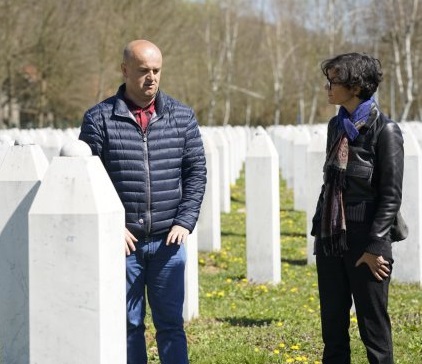
Azir Osmanović, Curator of the Srebrenica Memorial Center, shows Floriane Azoulay, Director of the Arolsen Archives, the cemetery for the victims of the genocide.
Raising awareness for the genocide
The Arolsen Archives and the Srebrenica Memorial Center are now working to set up a collaboration in archiving and IT / data storage. A delegation from Srebrenica already came to Germany in June 2022 to learn more about the work of the Arolsen Archives. In the fall of 2022, the Arolsen Archives will organize a meeting between the memorial staff and representatives of German politics and civil society. Together, the group will discuss ways to raise awareness of the Srebrenica genocide in Germany, and ways to prevent atrocities in general.
»Our dialog with the team from Srebrenica was very moving. Almost everyone there has a family story connected with this genocide, which makes their work a very personal quest for truth. We’d be honored to support the Memorial Center with our archival know-how. In turn, we can learn from their tried and tested strategies for confronting historical revisionism and ideologies of hatred.«
Floriane Azoulay, Director of the Arolsen Archives

